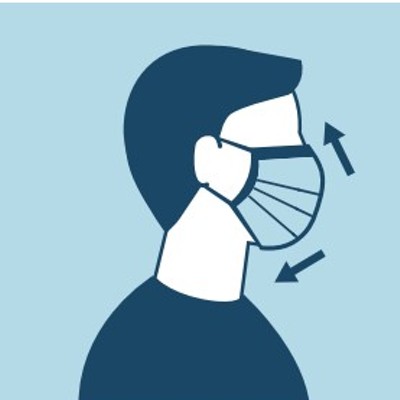When it hit, she had to have lumpectomy surgery to remove the cancer, and then undergo chemotherapy. Normally in this phase of treatment, patients suffer from extreme nausea and fatigue.
But Lazarus, now 39, says it wasn't that bad. She was enrolled in a military-style exercise class when she was diagnosed, and she escaped the agonizing physical affects that usually afflict chemotherapy patients, she believes, because she was in such good shape.
During her basic-training workout sessions, she met Anita Kellman, a breast surgeon's assistant who encouraged her to keep working out and supported her through the treatment process. A year later, in January 2004, the two women decided to introduce military-style exercise to other breast cancer patients by founding their nonprofit Breast Cancer Boot Camp.
"We thought if it worked for her, it would work for everyone else," Kellman says.
Breast Cancer Boot Camp is a workout program and informational support group for breast cancer survivors and their families and friends. In it, patients are encouraged to live an active lifestyle to increase their quality of life.
Sessions are split into two groups: One meets Saturday morning, the other Monday afternoon. They meet outside at Udall Park on Tanque Verde and Sabino Canyon roads to get fresh air and avoid the germs lurking in a gym. Each 25-member class sweats through a one-hour workout including cardio, squats, lunges, push-ups and abdominal work taken directly from a Navy Seal exercise handbook.
Easing the pain of cancer treatment through exercise is a way to make survivors "physically stronger and mentally tougher," Kellman says.
The sessions are run in a good-cop/bad-cop format, with Kellman being the drill sergeant who pushes the troops to the limit, and Lazarus showing the women modified versions of the exercises.
Men can get breast cancer, too; however, no men have attended the boot camp so far, except for a few who have come to support women they know. No one is pushed to work harder than is comfortable, and if a patient is too sick to exercise on a particular day, she may come out and watch just for emotional support, Kellman says.
The group meets for six sessions during the year, regardless of weather conditions. "People ask me, 'What happens when it rains?' and I tell them, 'Well, you get wet,'" Kellman says.
The classes have grown large enough--almost entirely by word of mouth--to be considered near capacity, but Kellman says they won't turn anyone away.
Troop members take the workouts a step further by encouraging each other and talking about their experiences. An important aspect of the program is that women can get together and talk about things other than cancer, a much-needed escape from a dreary part of their lives, Kellman says.
"It's not this big, depressing, touchy-feely group," Kellman says, dressed in a tank top and army fatigue pants. Here, the women don't feel pressure to talk--it just happens naturally.
While some choose to go only once, the camaraderie of fellow cancer survivors and the physical benefits of exercise draw the majority of the women back for multiple sessions.
"It really helps to have someone who is going through something similar," Lazarus says.
The instructors have implemented a buddy system in which each patient is paired with someone to motivate them in the classes. The teachers recommend that patients bring a family member or a friend to the classes, but if someone does not have a partner, the program has recruited several volunteers to pair up with patients throughout the six sessions as needed.
Regular exercise helps survivors--some newly diagnosed, some in treatment and some recovering or in remission--to feel that they are doing something good for themselves.
A year in the making, the boot camp is not only whipping survivors into shape; it's also expanding into education and mentoring. The organization is also planning to grow geographically and apply for nonprofit status.
Most people who get cancer are uninformed and unaware of where to go for comprehensive information.
"You have so many questions, and you just hope the next person can get them answered," Lazarus says.
That's why Kellman and Lazarus are starting to hand out packets of information and bring lecturers to the sessions. Knowing where to get information is important, and they can steer survivors in the right direction.
Lazarus's inspiration to educate comes from her personal experience, when she questioned her doctor's course of action after she was diagnosed. The first red flag was that the doctor wanted to start chemotherapy the week after the diagnosis. She learned on the Internet that her type of cancer did not need to be treated with such a degree of urgency. The next strike came when Lazarus independently discovered that she needed further tests to see which kind of tumor she had, which would determine the best course of treatment. The doctor made no mention of such testing. Lazarus changed doctors and is a strong believer in the importance of independent research.
Finding the right doctor is critical. Kellman says patients often think they can go to any doctor and obtain the same results.
"It's important to know (even) where to get a mammogram. It's not a blood test," Kellman says.
Lazarus and Kellman are also passionate about educating people about health insurance.
Lazarus says, "I tell people, sick or well, 'You know, you might want to check your coverage.'"
Incredibly, her insurance did not consider her cancer to be "a major medical condition," because all her treatment was in an outpatient setting. She and her husband, Dave, ended up with $35,000 in personal debt. But there's good news: Although cancer always has a chance of coming back, Lazarus is in remission and considers herself to be cancer free.
Kellman and Lazarus have not discovered any other programs like theirs, and so they are planning to set up Breast Cancer Boot Camps in other cities throughout Arizona. But first comes the construction of a specialized exercise course at Brandi Fenton Memorial Park on River and Dodge Roads. The camp is still raising funds for the $25,000 project, which is slated to be done by the end of 2006.












